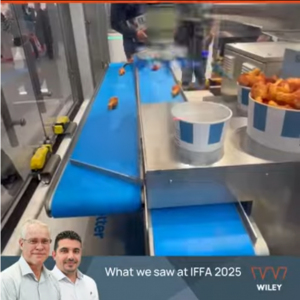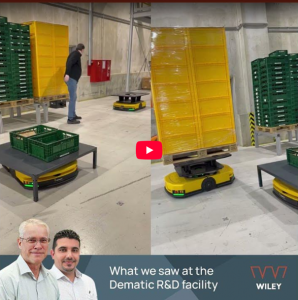The Australian red meat industry leads the world in standards and quality and the industry is working hard to leverage our advantage in this area. Innovation is a critical part of the industry’s efforts to stay on the front foot.

Image sourced from MLA website
In recent times a lot of effort has gone into developing world leading technology for objective carcase measurement. Development in this area is leading the industry to a value based economic model which will reward the best performers and operators across the value chain. DEXA (Dual Energy X-Ray Absorptiometry) is a step change in the science of objective carcase measurement and, thanks to the Meat & Livestock Australia’s (MLA), the solution is starting to be rolled out in market.
This week Meat & Livestock Australia have announced they will invest up to $10 million to co-fund the installation of DEXA objective measurement systems in red meat processing plants following multiple requests to accelerate the adoption of the technology. Processors looking to stay ahead and maintain a competitive edge will be looking seriously at how they can leverage DEXA in their operations and provide actionable carcase information to the producers. It’s this actionable feedback that will make all the difference in the future with producers being empowered to modify their operations to maximise the yield when the animal is on the hook.
MLA will work with willing partners to develop a single scientific measurement of lean meat yield – and systems to collect and use data across supply chains for future research and development in genetics, animal health and husbandry, processing automation and other productivity improvements..
MLA Managing Director Richard Norton said the DEXA installations would be funded via matching contributions from participating processors and MLA Donor Company (MDC).
Mr Norton said MLA had already received project submissions from Gundagai Meat Processors, Frewstal Pty Ltd, Wagstaff Cranbourne Pty Ltd and Teys Australia, but also invited expressions of interest from other beef and sheepmeat processors.
“This project is an important part of MLA’s investment in the research and development of objective measurement systems that our red meat and livestock industry can use to make precise assessments and better commercial decisions,” Mr Norton said.
“It will enable supply chains and the businesses within them to drive new efficiencies, generate more value and better meet market demands, which ultimately improves our industry’s international competitiveness.”
Wiley have been collaborating with several clients in the industry to evaluate the readiness of their facilities for DEXA implementation. Wiley’s Managing Director, Tom said “the DEXA rollout will create a new level of transparency that will benefit all stakeholders in the beef industry right through to the end consumers. The analysis of the data captured and hopefully made available in the public domain to foster open innovation between businesses, universities and the research sector across Australia will accelerate and drive many new business innovations and opportunities both up and down the supply chain never before conceived. At Wiley we love collaborating with our clients to realize these opportunities and evolve their businesses and operating facilities to embrace these changes in a thorough, safe and practical way.”
MLA is still working with the industry’s peak councils on its proposal to install stage one of the DEXA technology into all those AUS-MEAT registered slaughter facilities in Australia who are interested in implementing the solution.
“This $10 million project that we’ve announced today is funded through the MDC and simply allows MLA and those companies who want to get on with implementing DEXA to do so,” Mr Norton said.
“While the DEXA technology is ready for commercial application, its adoption does herald a transformation in the way our industry has done business for many decades and it’s not surprising that industry representatives are carefully considering the options.
“If the industry’s peak councils and processors do decide to accelerate the adoption of objective carcase measurement across the industry through an investment of producer levies, we can do so.”
Processors wishing to submit an expression of interest for co-funding the installation of a DEXA system should contact Sean Starling, General Manager – Research, Development & Innovation, MLA: sstarling@mla.com.au.
Processors looking for a smooth transition to DEXA can call Brett Wiskar on 1300 385988 from Wiley to discuss their opportunities.


